Tobacco use affects all Nunavummiut and the land around us. Laws around tobacco use are designed to protect our community members, especially children and youth. Explore this section to learn more.
Tobacco and the Law
Tobacco and the Law
Tobacco and Smoking Act | Buffer Zones and Smoke-free Places | Laws for Retailers | Enforcement
Tobacco and Smoking Act
On May 31, 2023, Nunavut’s Tobacco and Smoking Act (TSA) came into effect to strengthen and replace the Tobacco Control and Smoke-Free Places Act that was 15 years old.
The Tobacco and Smoking Act (TSA) was designed to protect Nunavummiut from harmful second-hand smoke, especially children, pregnant women and individuals with health conditions, by ensuring that public places are smoke-free.
The Tobacco and Smoking Act (TSA) tells us where tobacco, vaping and other electronic cigarette devices, and cannabis can be used, who can buy it and restricts how retailers sell it.
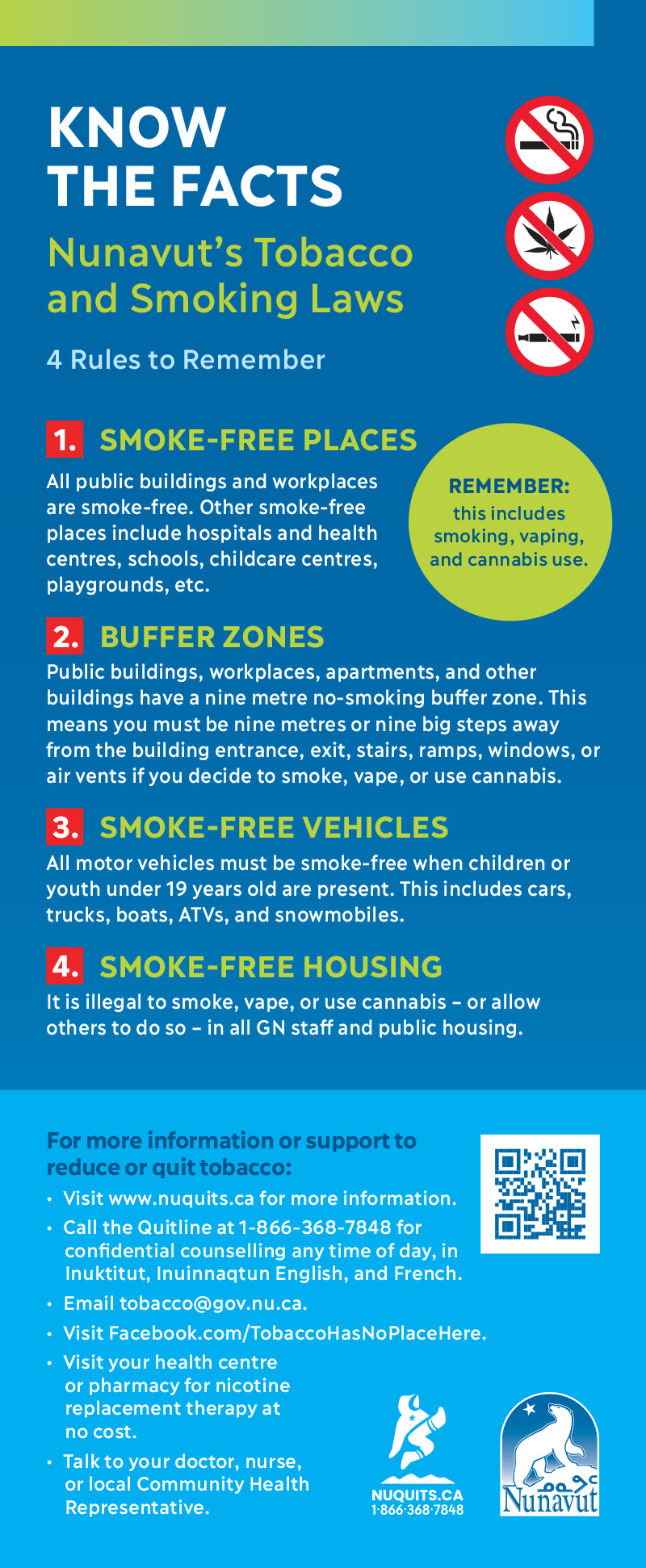
Important changes to the legislation:
- Smoke-free housing
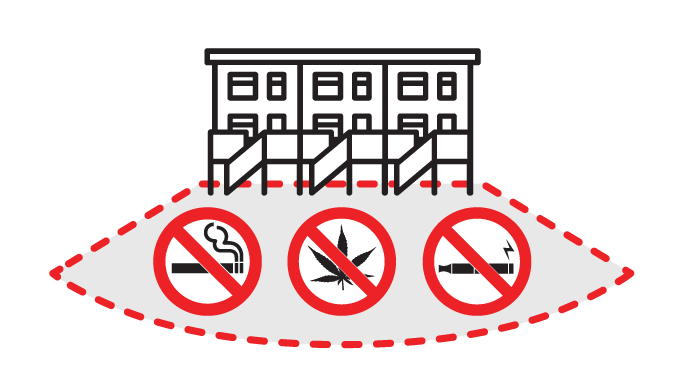
It is illegal to smoke, vape, or use cannabis – or to allow others to do so – in all Government of Nunavut staff and public housing. This also includes common areas of a building, such as balconies, hallways, stairs, and shared entrances. Smoke-free housing rules help to reduce Nunavummiut’s exposure to harmful second-hand smoke and protect the health and well-being of neighbours.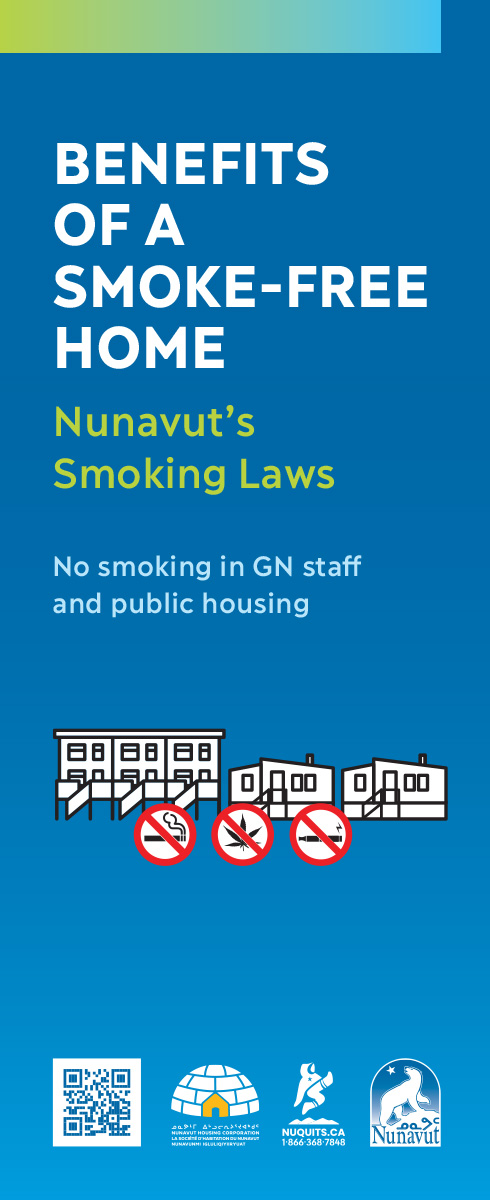
- Smoke-free vehicles
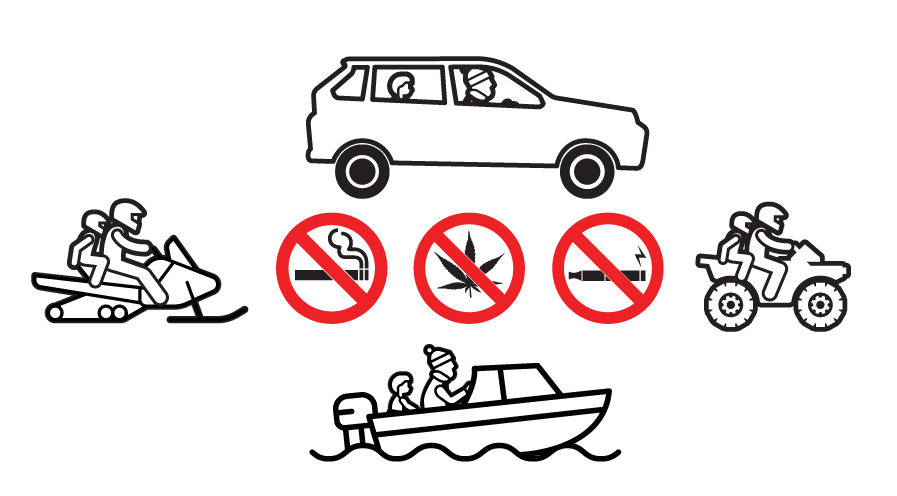
Smoking, vaping, or using cannabis in a motorized vehicle, like a car, boat, ATV, or snowmobile when someone under 19 years old is present is illegal.
This new law is meant to reduce exposure to second-hand smoke and protect the health of children and youth.
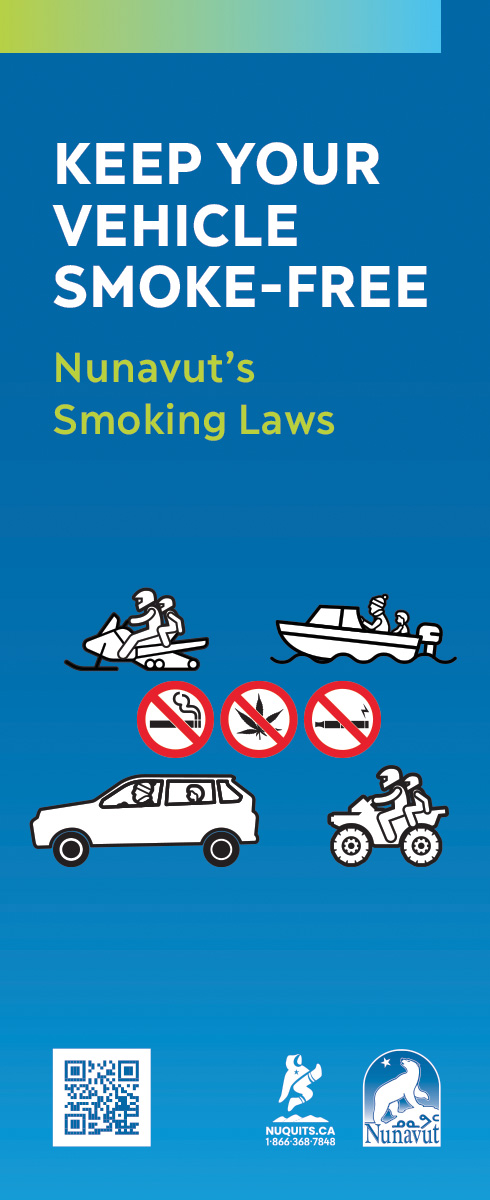
Buffer Zones and Smoke-Free Places

It is illegal to smoke, vape, or use cannabis in designated smoke-free places or buffer zones. A buffer zone is 9 metres from any entrance or exit to a building. This includes wheelchair ramps, walkways, stairs, landings, windows and air intakes.

Smoke-free places include:
- Workplaces and work vehicles;
- Public structures and public buildings;
- Schools and school grounds;

- Hospitals, health centres and their grounds;

- Childcare centres and their grounds

- Common areas of an apartment building or condominium building;

- Outside spaces surrounding a restaurant or bar;
- A buffer zone of a window used for providing goods or services to the public;
- Motor vehicles when a minor is present;

- Playgrounds, sports or playing fields;
- Concerts, spectator stands, and public events;
- Buffer zone of a residence
Laws for retailers and the public
Under the Tobacco and Smoking Act, it is against the law to:
- Sell tobacco and alternative products to anyone under 19 years old.
- Supply (give/trade) tobacco, vaping and other electronic cigarette devices, and cannabis to anyone under 19 years old.
- Sell single cigarettes.
- Sell tobacco products at retail where delivery of the product to buyers doesn't happen at the time of purchase and at a permanent physical retail store.
- Sell via the internet; home delivery of tobacco and alternative nicotine products.
- Sell alternative products with nicotine in a concentration that exceeds 20 milligrams per milliliter.
- Sell tobacco products or engage in tobacco wholesale sales without a valid dealer registration or Tobacco Retailer Permit issued under the Nunavut Tobacco Tax Act by the Department of Finance.
- Sell a tobacco or smoking product that is flavoured, or a product designed or advertised to be used to flavour tobacco and alternative products.
- Advertise and promote tobacco and smoking products in any place where tobacco and smoking products are sold.
- Display signs indicating the availability or price of tobacco, or a smoking product at retail stores where minors have access.
In addition to territorial laws, there are federal tobacco laws that impact tobacco use and sale in Nunavut. The main one is called the Canada Tobacco and Vaping Products Act.
The goal of Canada’s Tobacco Strategy is to support Canadians in quitting smoking, reduce the harms of nicotine addiction, and protect the health of youth and non-tobacco users. It also mandates health warning labels on each cigarette, details how big these health warnings must be and puts restrictions on advertising tobacco products and vaping products.
Tobacco Enforcement and Compliance Program
The Tobacco Enforcement and Compliance Program ensures that all tobacco retailers in Nunavut are in compliance with the Nunavut Tobacco and Smoking Act and its regulations.
The program involves two areas for action:
Education and Outreach:
All tobacco retailers in possession of a valid Tobacco Retailer Permit, registered through the Department of Finance, will receive an education and outreach visit as well as a Tobacco Retailer Toolkit from an Environmental Health Officer (EHO).
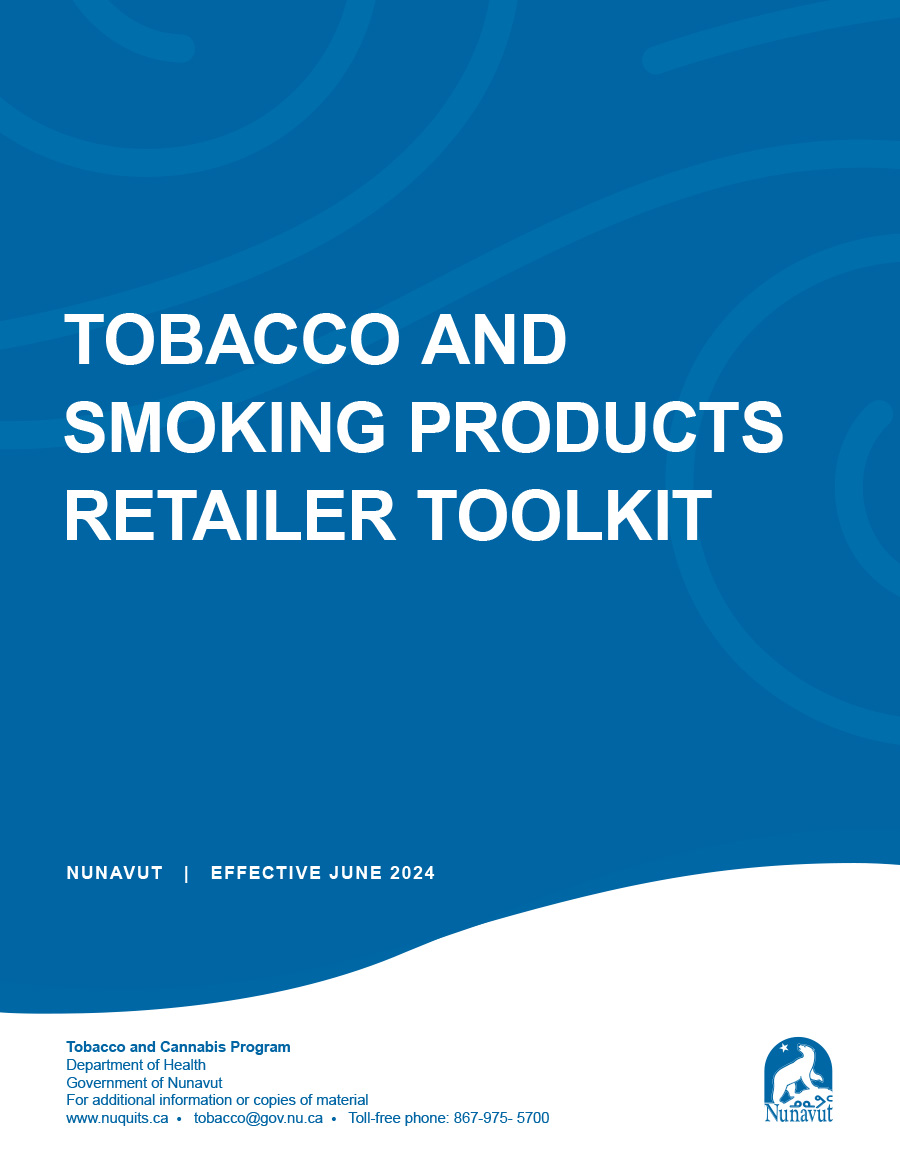
Tobacco Inspections:
Regular tobacco inspections will ensure that tobacco retailers and their employees are in compliance with the Tobacco and Smoking Act (TSA) and the regulations.
This includes making sure that:
- Employees are checking ID and not selling tobacco, vaping and other electronic cigarette devices to people younger than 19.
- The store has written tobacco policies, practices and procedures in place to discourage and prevent the sale of tobacco and smoking products to minors.
- All employees receive training and education before selling tobacco, vaping and other electronic cigarette devices.
- Retailers have systems in place to monitor employees and ensure compliance with the TSA, related regulations and company policies.
- Proper signage is in place.
Environmental Health Officers

Environmental Health Officers work to promote public education, conduct inspections of tobacco retailers to ensure compliance with the Tobacco and Smoking Act and its regulations, and respond to complaints from the public.

To report any violation of these new laws at your workplace, contact the Workers Safety and Compensation Commission (WSCC) at 1-877-404-4407 or visit www.wscc.nt.ca.


For violations in another smoke-free place or a buffer zone like in front of a store, school ground or hospital ground, please contact the manager or the owner of the store as it is their responsibility to ensure that employees, patrons or visitors are complying with the smoking laws.

To file a complaint about another tenant’s use of tobacco, vape, or cannabis, call or email your Local Housing Organization or the Regional Nunavut Housing Corporation office.

For any other question or for more information, email the Department of Health’s Tobacco and Cannabis Program at tobacco@gov.nu.ca.

